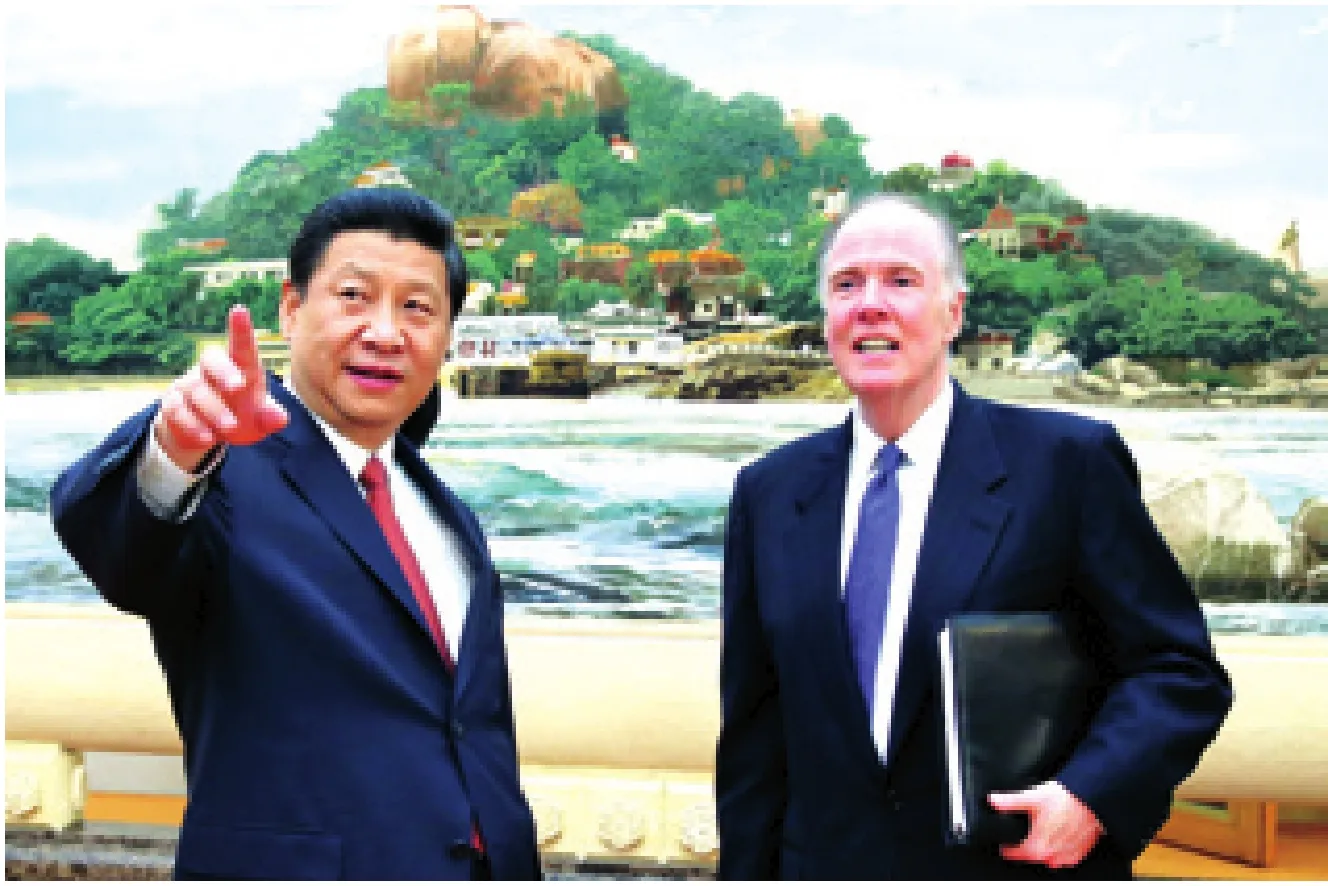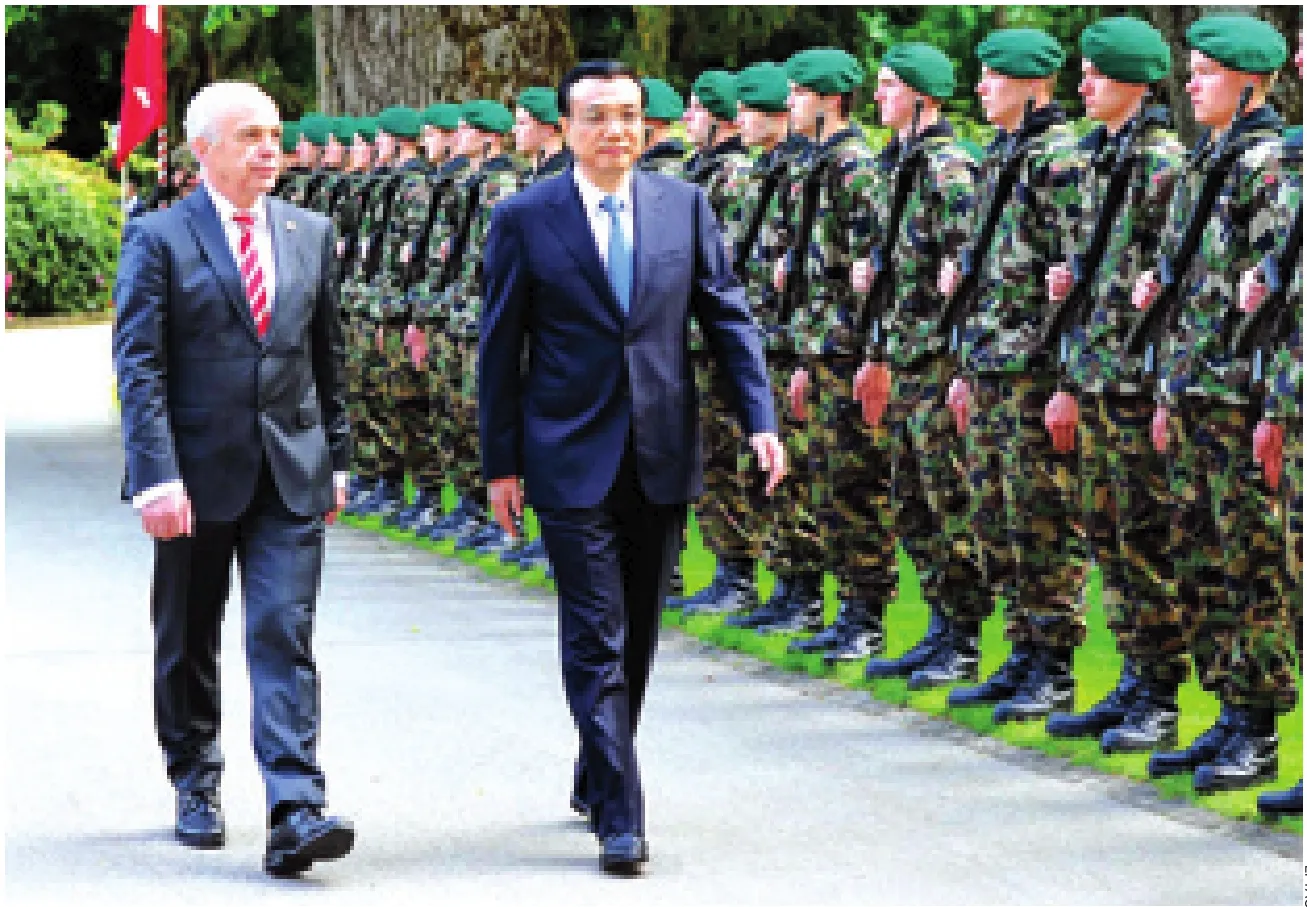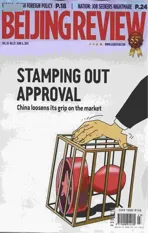Xi-Li: A Diplomatic Duo
2013-03-05ByRuanZongze
By Ruan Zongze
Xi-Li: A Diplomatic Duo
By Ruan Zongze
Chinese leaders demonstrate a cooperative and win-win global outlook

The author is vice president of the China Institute of International Studies
Since a once-in-a-decade leadership transition in March placed President Xi Jinping and Premier Li Keqiang at the helm of China, the international community has been closely observing the country’s foreign policy moves.
Will China’s diplomacy change significantly or take on new characteristics? Will China become aggressive, or continue its path of peaceful development? The international community looks to the words of the Chinese leaders and their actions to find the answers.
Multi-faceted diplomacy
The Chinese Ministry of Foreign Affairs declared on May 21 that Xi would pay state visits to Trinidad and Tobago, Costa Rica and Mexico from May 31 to June 6 at the invitations of the three countries’ leaders. U.S. President Barack Obama also extended an invitation to Xi, who will meet his U.S. counterpart on June 7-8 at Sunnylands, a 200-acre estate in Rancho Mirage, California. It will be the first meeting between the top leaders of China and the United States since Xi took office. It will stand as a certain climax of the new Chinese leadership’s diplomatic activities.
Chinese leaders have been on a tight diplomatic schedule since March. Beijing has recently been the most active diplomatic stage in the world, as foreign leaders arrived one after another. China successfully hosted the Boao Forum for Asia in early April, with leaders and guests from Asia, the Americas and Europe gathering in south China. While inviting foreign representatives in, Chinese leaders have also paid visits to other countries to strengthen communication with the rest of the world.
Xi made his first round of visits after taking office in March, conducting trips to Russia, Tanzania, South Africa and the Republic of Congo, and participated in the BRICS Summit in Durban, South Africa. Vice President Li Yuanchao took his first foreign trip after assuming office on May 8-16, paying official visits to Argentina and Venezuela. Premier Li made his first trip abroad to India, Pakistan, Switzerland and Germany on May 19-27. State Councilor Yang Jiechi visited Mongolia on May 8-9.
On May 1-5, Foreign Minister Wang Yi paid visits to four Asian countries: Thailand, Indonesia, Singapore and Brunei. Before wrapping up the trip, Wang pointed out in an interview that his voyage of communication and cooperation was spreading an important message—that is, the new Chinese leadership highly values China’s relationships with its neighbors, and China is willing to consider ASEAN a priority in its regional diplomacy.
This series of foreign visits and important trade and economic agreement signings are weaving an all-dimensional diplomatic network, which covers China’s relations with big powers, neighboring countries and other developing countries. Chinese leaders manage differences with a frank and sincere attitude, and discuss the future with other countries from a practical and developmental standpoint. They emphasize cooperation and win-win results, and answer the world’s doubts about China with their actions.
In spite of its GDP having become the second biggest in the world, China remains a developing country. This essential attribute means that China must regard its relations with neighboring countries and other developing nations as its diplomatic priority. As relations with them become closer, China’s interests will be more secured.
The right path
The report of the 18th National Congress of the Communist Party of China in November 2012 states China’s global vision: closely heeding human destiny, inclusiveness and mutual learning, win-win cooperation and joint protection of international fairness and justice. Discussing China’s relationship with the world, Xi said Chinese people cherish patriotism while also maintaining an international view. China will shoulder more international duties and obligations within the scope of its capability, so as to make greater contributions to the peace and development of mankind as its national strength grows.
This promise is based on China’s endogenous development power. Being a permanent member of the UN Security Council and the world’s second biggest economy, China has an increasingly close connection with the world, sharing larger common interests with other countries. China needs a stable neighboring and international environment, as well as vigorous and reciprocal economic relationships, to continue its development. Caring only about its own development while ignoring that of others would amount to running backward. China’s achievements have raised expectations of what it is capable of. It is now remolding its relationship with the world through its interactions abroad.
China’s global outlook represents the right choice of history. In past centuries, the definition of “great power” and the conditions for becoming a “great power” have been slowly but constantly changing. In ancient times, military power and economic strength usually had direct links. Military powers at that time seized territory and fortune through bloody conquest. A country’s land mass could basically decide its financial strength, which generally was formed through tax, plunder and forced tributes. After the Industrial Revolution, advanced technology became the crucial element deciding a country’s national strength. As a consequence, the method of acquiring global fortune changed from conquest to trade and mastering the passages of trade.

PREPARING FOR THE FUTURE: Chinese President Xi Jinping talks with visiting U.S. National Security Advisor Tom Donilon in Beijing on May 27
The world has become a global village since the beginning of the 21st century. Well-developed transportation, cutting-edge technology and flourishing trade have highly integrated the economies of different countries. Even great powers must seek cooperation while gaining fortune from trade to avoid problems. Many economies are still struggling with the financial crisis, which began on Wall Street in 2008 and soon spread to the whole globe. All these changes require great powers and countries hoping to become great powers to adjust their policies in keeping with the changing situation.
Historically, the relationship between a pair of great powers, usually between an established power and an emerging power, was regarded as zero-sum fatalism. But today, against the backdrop of globalization, the theory claiming that a great power must be a hegemonic power and a hegemonic power is the strongest has become an outdated conclusion with proven defects. Nowadays, conducting cooperation between countries can be the best way to realize interests. Conflicts, on the contrary, would damage all sides.
Therefore, sticking to the path of peaceful development is China’s only choice. As China asserted, other countries should also choose such a path—the only one that can lead to winwin cooperation across the world.
China-U.S. relations
Judging from the current situation, the direction and orientation of the China-U.S. relationship can largely decide whether the 21st century will be defined by cooperation and win-win outcomes, or a zero-sum game.

SWISS TRIP: Chinese Premier Li Keqiang is accompanied by Ueli Maurer, President of Switzerland, at a welcoming ceremony in Bern on May 24
Chinese leaders have come up with a timely suggestion to establish a new type of relationship between great powers, hoping to prevent history from repeating itself. They envision China and the United States—two big powers on the verge of a new starting point in history—-treating each other’s development and growth as opportunities instead of threats. They call for further cooperation, not mutual restraint, to turn these opportunities into actualized common development, so as to overcome the historical trend of great power conflicts.
The U.S. side has actively responded to China’s proposal. President Obama called Xi on March 14, agreeing that bilateral relations were facing a historical opportunity to chart their future course. He said that the United States is willing to make efforts together with China to build a new type of relationship that is based on healthy competition rather than strategic gamesmanship.
This strategic consensus reached between the two presidents will certainly create momentum behind the joint efforts of China and the United States to draw up blueprints for the future.
yanwei@bjreview.com
